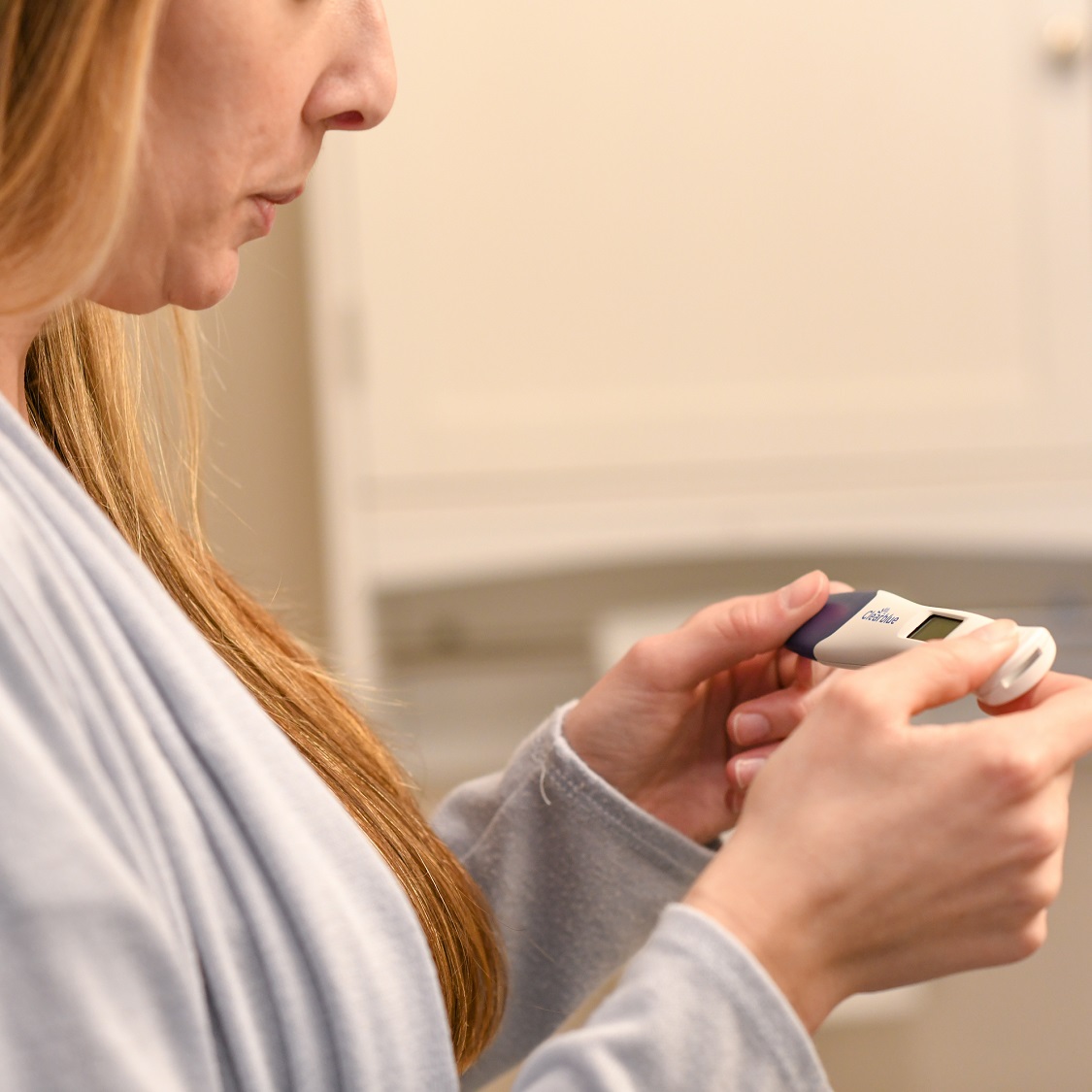7 Signs You Should Seek Help Post Pregnancy

July 30, 2019
If you have children, you know how difficult the newborn stage can be. After giving birth, you’re so focused on figuring out parenthood that you can easily forget about caring for yourself.
About 700 women die from pregnancy-related complications each year in the U.S., and about one in three of those deaths occur between one week and one year after delivery.
However, three out of every five pregnancy-related deaths can be prevented with increased attention to personal health.
Seek help if you experience any of these signs or symptoms post-pregnancy.
1. You're experiencing heavy bleeding:
Bleeding post pregnancy is completely normal, but consistent, heavy bleeding is another story.
“When you’re soaking through one pad/hour, or seeing large blood clots that are larger than an egg or plum, there might be cause for concern,” explains Monica Liriano, M.D., an OB/GYN at Hackensack Meridian Health Medical Group. “If the flow also seems nonstop, and that it’s not decreasing over time, you should call your doctor.”
With heavy bleeding you could be experiencing postpartum hemorrhage, or other issues, which can be extremely dangerous for women.
2. Your incision is slow to heal:
During a vaginal childbirth it’s common for women to need an episiotomy, or a surgical cut in the vagina to aid in a difficult child birth. For women who require a caesarean section, an incision is made in the abdomen and uterus to get the baby out.
“Whether you have a vaginal birth or a caesarean section, it’s important to keep a close eye on how the incision is healing,” says Dr. Liriano. “If the incision is slow to heal or there’s prolonged bleeding, puss or redness, there could be an infection. The earlier the infection is caught, the better chance you have at reducing possible complications.”
3. Your leg is swollen, red, warm or painful to touch:
“If you’re experiencing these symptoms in your leg, it could be the sign of a blood clot,” Dr. Liriano explains. “The formation of the blood clot can cause deep vein thrombosis (DVT). If a blood clots break loose, travels through your bloodstream and ends up in your lungs, you could experience a harmful blockage in your lungs.”
4. You have a fever higher than 100.4:
“If you have a fever it means your body is trying to kill off a virus or bacteria that’s causing an infection,” Liriano said.
Although a 100.4 degree fever seems low, be cautious and call your doctor before the possible infection gets worse.
5. Your head won’t stop hurting:
As if you don’t already have enough going on after giving birth, headaches during the postpartum period are actually a common complaint. A lot of factors contribute to this, including hormonal changes, lack of sleep, stress and dehydration.
But can postpartum headaches get to a point where you should be concerned? Yes, says Dr. Liriano.
“If your headache lasts longer than 24 hours, feels more severe than usual and you can’t seem to get relief from water, rest or anti-inflammatories, it could be a sign of rare but dangerous conditions such as stroke, meningitis or dural sinus thrombosis.”
6. You’re having trouble breathing:
Shortness of breath is no stranger to pregnancy, but it should get better after giving birth. If you’re postpartum and still experiencing this symptom, especially if you had a caesarean section, it is worth looking into.
Trouble breathing or shortness of breath after having a caesarean section can be a sign of fluid in the lungs or a pulmonary embolism (a blockage in the arteries of the lungs caused by a blood clot), Dr. Liriano explains.
When you’re pregnant, you’re more likely to form blood clots for various reasons. The clots can start in the legs and travel to the lungs, causing a pulmonary embolism, or brain, causing a stroke.
If you had a caesarean section, you’re at greater risk because surgery also increases your risk of blood clots, Dr. Liriano explains.
7. You’re having thoughts of hurting yourself or others:
If you’re feeling depressed after having a baby, you’re not alone.
“About 1 in 9 women experience symptoms of postpartum depression,” says Dr. Liriano. “Everyone’s experience with postpartum depression is different, but some signs include feeling disconnected with the baby, experiencing anger or withdrawal from loved ones and having thoughts of hurting yourself or others.”
The good news – postpartum depression is treatable, it’s just vital to talk to your medical provider if you think you might be depressed.
Although many of these conditions are rare, it’s important to be aware of your body and potential threats to your health post pregnancy. As a woman who just gave birth, there are two things working against you: You’re at higher risk for scary health complications and you’re completely preoccupied with caring for your baby over yourself.
Next Steps & Resources:
- Meet our source: Monica Liriano, M.D.
- To make an appointment with Dr. Liriano or a doctor near you, call 800-822-8905 or visit our website.
- National Institute of Mental Health - Perinatal Depression
- CDC - Depression Among Women
The material provided through HealthU is intended to be used as general information only and should not replace the advice of your physician. Always consult your physician for individual care.






